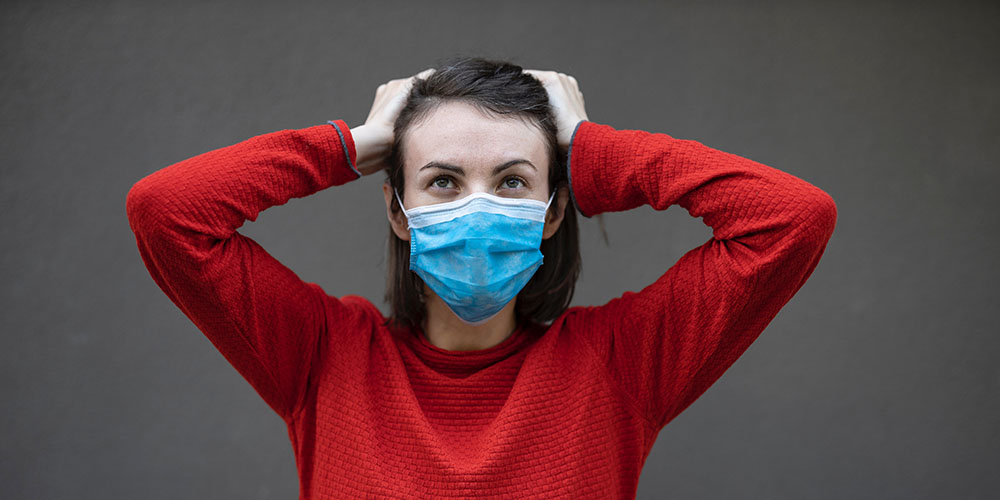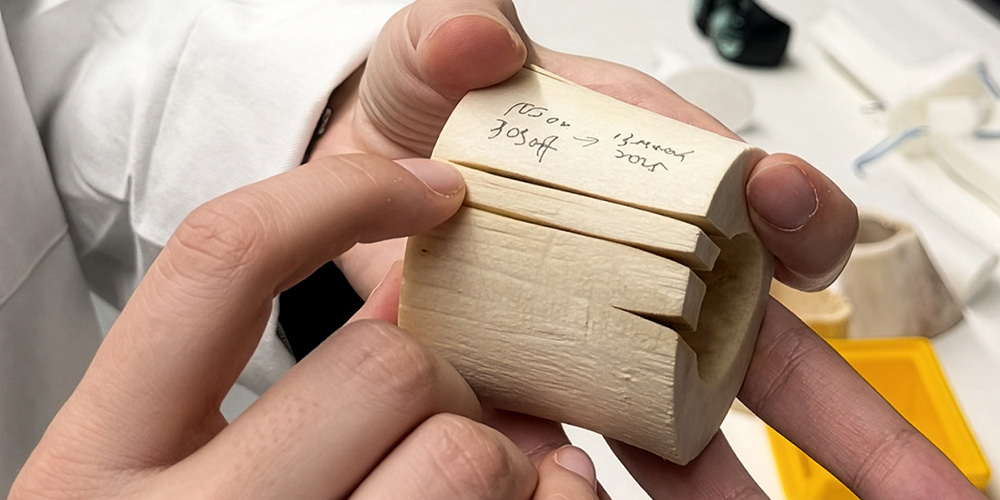Stress levels remain elevated for many even as coronavirus restrictions are lifted
There is less fear of coronavirus since the end of the lockdown, but 40% of the population still feels more stressed than before the pandemic began. These are the results from the analysis of the University of Basel’s Swiss Corona Stress Study. The prevalence of severe depressive symptoms remained relatively high, even after restrictions were lifted. Interestingly, older people appeared to be less susceptible to depressive symptoms during the coronavirus crisis.
06 July 2020
The latest results from the Swiss Corona Stress Study refer to the period from 11 May to 1 June 2020, i.e. the period when measures to control the coronavirus outbreak were gradually lifted. During this period, 10,303 individuals from throughout Switzerland took part in the anonymous online survey at coronastress.ch. The first survey was conducted during lockdown, from 6 to 8 April.
Because the data was collected through a public online survey, the study is by definition not representative of the total population. However, the sociodemographic attributes of the respondents mean they still represent a broad spectrum of the Swiss population.
Different stress reactions
As already seen from the analysis of the first survey, the coronavirus crisis has prompted a wide range of different stress reactions. The research team led by Professor Dominique de Quervain reports that:
-
40% of respondents reported feeling more stressed than before the coronavirus crisis, even as measures were lifted. As before, the main reasons for increased stress include changes in people’s work or education situations as well as the impact of restrictions on social interaction. During lockdown, around 50% of survey respondents reported feeling more stressed than before the coronavirus crisis, i.e. slightly more than during the period of lifting.
-
28% of respondents reported no change in their perceived stress levels, compared to around 24% during lockdown.
-
32% of respondents actually reported feeling less stressed than before the crisis. For them, the drop in stress levels is still linked to having more time for rest and relaxation as well as a decrease in the number of professional, educational and personal commitments. During lockdown, around 26% reported feeling less stressed than before the coronavirus crisis.
Depressive symptoms still higher than usual
The increase in stress symptoms brought on by the coronavirus crisis has been accompanied by an increase in depressive symptoms. At nearly 12%, the prevalence of severe depressive symptoms remains higher than normal, even as lockdown measures have been lifted (9% during lockdown).
Mental health issues in the past (prior to the coronavirus crisis) increased the risk of developing severe depressive symptoms during the coronavirus crisis. The researchers identified this correlation in both phases of the study. However, almost 20% of those affected had reported no significant depressive symptoms before the crisis.
Older people and men particularly resilient
The survey also looked at respondents who proved to be particularly resilient with regard to depressive symptoms. These individuals – around a third of the respondents during both phases – developed no significant depressive symptoms during the coronavirus crisis and did not have any before the crisis either.
This group contained a disproportionate number of middle-aged and older people (55 and older) and men. This is especially striking considering that older people and men are more vulnerable to severe illness from the virus.
Less anxiety about the virus
During lockdown, 57% of respondents reported feeling a general increase in anxiety compared to before the crisis, whereas the figure dropped notably to around 41% during the period when restrictions were lifted. In particular, the fear of falling seriously ill from the virus and the fear of shortages in resources have declined.
In addition, the second phase of the survey again showed that on average, people who spent more time on their hobbies or started a new project and who were physically active during the crisis experienced a smaller increase in stress.
Further information
Prof. Dr. Dominique de Quervain, University of Basel, Transfaculty Research Platform Molecular and Cognitive Neurosciences, member of the national COVID-19 Science Task Force, phone +41 61 207 02 37, email: dominique.dequervain@unibas.ch



